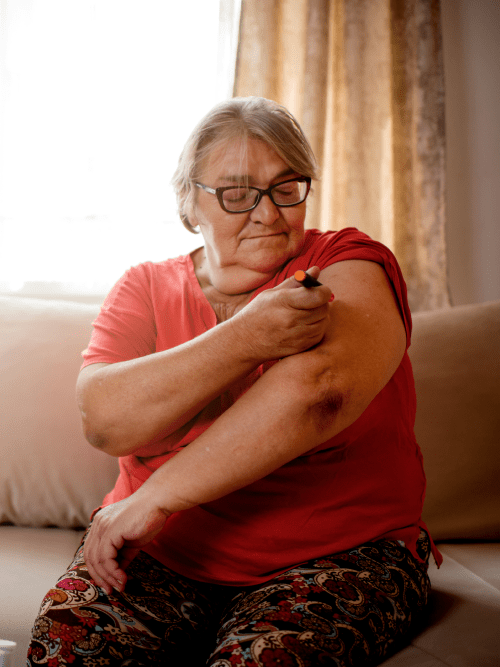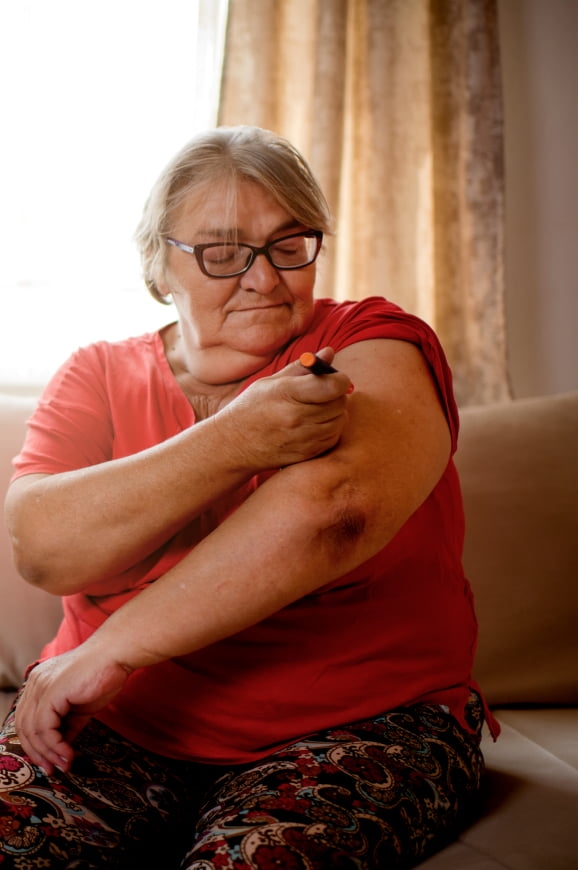How clinical trials drive medical progress
Clinical research is the ‘backbone’ of progress in healthcare. Behind every modern medical treatment are people who took part in clinical research to find out if it worked.
Without clinical research, the world would be a different place. Diseases that doctors can easily treat today would still be ruining lives – or prematurely ending them.

And doctors would also have no proper scientific evidence for advising people to do things like stop smoking, change their diet or take exercise.
Medical practice in the past was full of unproven notions. Only 120 years ago, one of the most respected sources of medical advice, the Merck Manual of Diagnosis and Therapy (1899), suggested tobacco smoke for asthma, coffee for insomnia and arsenic for anaemia! 1
Read About: Examples of clinical research that transformed medical practice


Why people choose to take part in clinical trials
Joining a clinical trial is always voluntary. Some people choose to join if the trial offers the chance to receive a potential new medicine that is not yet available for doctors to prescribe.
It has also been shown that, regardless of their condition or the medication they receive, people who enrol in clinical trials often benefit from the extra medical attention. For people with chronic conditions, such as type 2 diabetes, joining a clinical trial may also provide the impetus for a greater personal focus on their health.
Some people join trials because they want to make a difference to the healthcare of people like themselves in the future. They may get a good feeling from knowing they are doing something meaningful, in much the same way as giving blood or fundraising for charity.
Trial participants as research partners
Like all medical breakthroughs of the past, future medical progress can’t happen without people taking part in clinical research. Even if a potential treatment being studied doesn’t turn out to be successful, the trial findings are still valuable because they re-direct researchers to better paths.
Increasingly, clinical trial participants are considered ‘partners’ in a shared mission. Trial participants are experts in their own right because only they know what it’s like to live with a particular condition. For this reason, there is a move towards involving patients and their caregivers in designing and planning clinical trials, to make sure that a trial takes account of things that really matter to people living with the condition.
In recent years, clinical trials have become more and more ‘patient-centric’, which means that the needs, concerns, convenience and preferences of the participants are given just as much priority as the scientific quest.
The aims of clinical trials
Every clinical research trial sets out to answer a particular question which is made clear at the start. There are two main types of clinical studies:
‘Interventional’ clinical trials aim to test how well a potential new medicine (or current medicine, medical device, surgical procedure or other specific approach) works in treating or preventing a particular condition.
‘Observational’ studies don’t actively test a particular treatment or healthcare approach – they simply keep checking what happens over time to people who are receiving a particular medicine or type of medical care in routine practice. They also observe the effects of making lifestyle changes. These types of studies have helped doctors know what targets to recommend for things like blood glucose, blood pressure and cholesterol.
Read About: The four phases of interventional clinical trials


Finding the right participants for a clinical trial
A key consideration with all clinical trials is to figure out in detail what type of participants can join. For example, it may be important that the participants don’t have a form of the condition being studied that is too severe or too mild.
In addition, it may sometimes be important that they don’t have certain other conditions – or take certain other medications. Any of these things could affect how the trial medication works. It also might not be safe for some people to join.
The requirements that describe whether a person can or cannot join a trial are called ‘eligibility criteria’. A process called ‘screening’ is used to work out whether each person who is considering joining the trial meets all the eligibility criteria.


Making sure trial participants represent future patients
It is important that clinical trial participants properly represent the type of people who will ultimately receive the intended new treatment in routine practice.
Often that means people of different ages, sexes and ethnicities should be included in a trial. However, if a condition mainly affects a particular sector of the population, clinical trials for that condition should seek to enrol those types of people, because medicines often don’t have the same effect in different types of people.
When planning a trial, the sponsor will need to make sure that a sufficient number of people take part. If there are too few participants, it won’t be clear whether the findings are due to the treatment being studied or just due to chance. Every single participant in a trial counts because they help to make the findings more trustworthy.
Read About: Key principles of clinical trial design
Safeguards for participants
Conducting clinical trials is not only about science, but also about ethics – the laws, rules and guidelines that have been put in place to protect the human beings involved in research. Although clinical trials are a vital route to medical progress, the safety, wellbeing and rights of the people taking part always comes first.
Today, every clinical trial has to comply with national and international laws, government guidelines and codes of practice that ensure the planned research is appropriate and the rights and safety of research participants are protected. A clinical trial can only go ahead if it has been approved by an official regulatory authority in each participating country.
Every trial is also assessed in each participating country by an independent ethics committee which includes ordinary people as well as doctors and specialists. These committees decide if a planned trial ensures the safety, welfare and rights of participants are preserved. If not, it won’t be allowed to proceed.
Read About: The history of medical ethics and how clinical trials are governed
Participants’ rights
Joining a clinical trial is always voluntary. Each person is free to make up their own mind and discuss the opportunity with friends or family.
The researchers have a duty to explain everything that might affect this decision in ways that are easily understood. This enables ‘informed consent’, an important ethical concept.
When a person decides to join a trial, they will be asked to sign an informed consent form to indicate they are joining of their own free will and understand what the trial will involve. But even if they sign the form, they will be free to change their mind and leave the trial at any time.
Deciding not to join a trial – or deciding to withdraw from a trial – will not affect a person’s right to receive the medical care they need.
Once a trial has begun, if there are any changes to the plan – or new information emerges – the participants will be informed straight away.


Privacy and confidentiality
Researchers have a duty to keep personal information of trial participants private and confidential at all times, in line with local privacy regulations.
Read About: Payments to clinical trial participants

